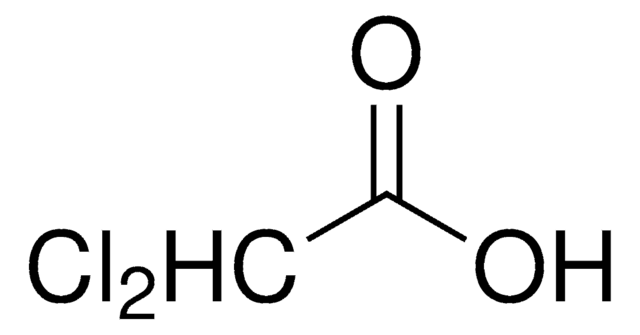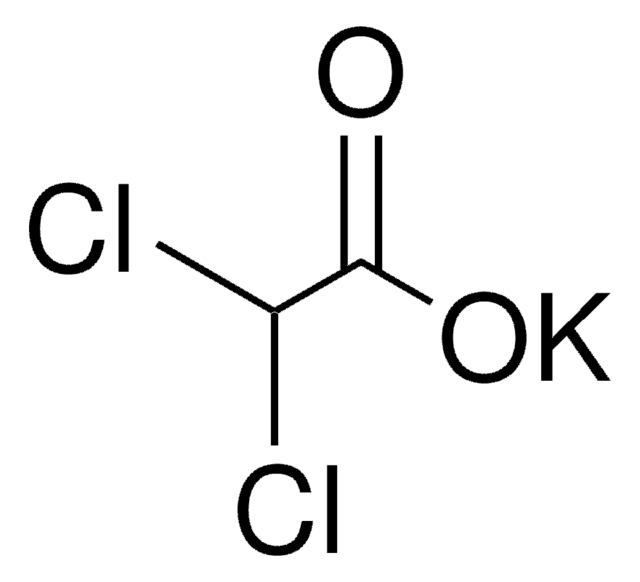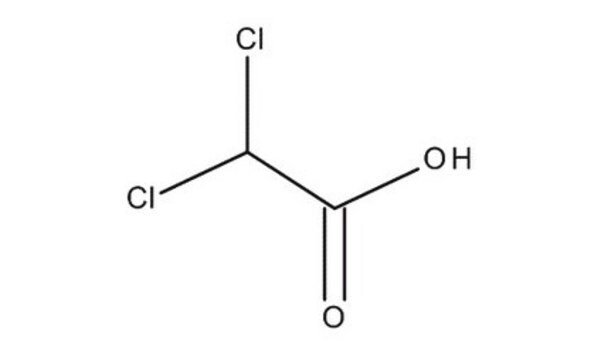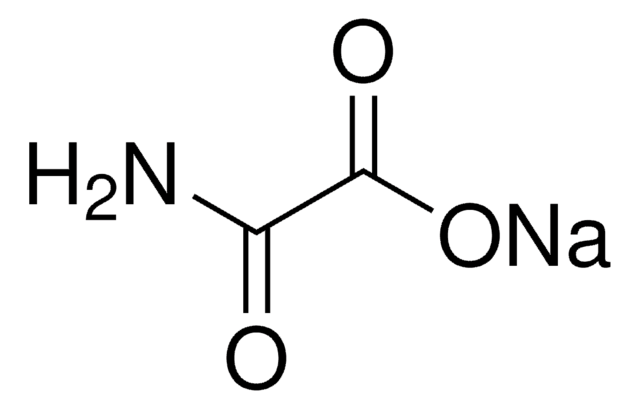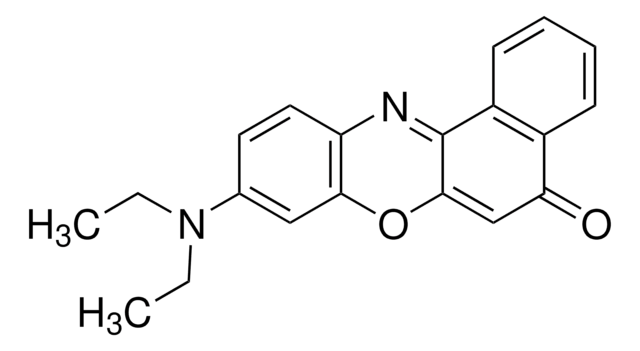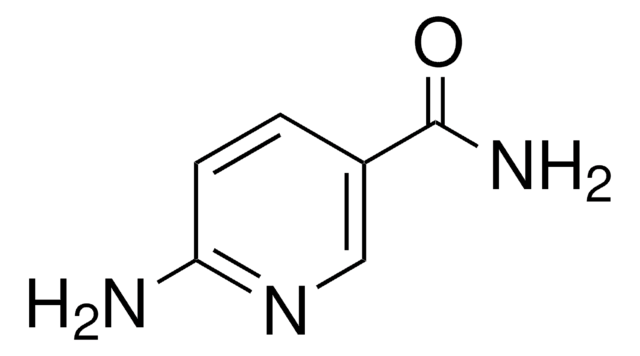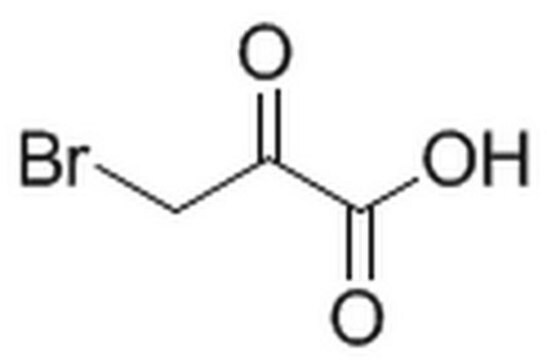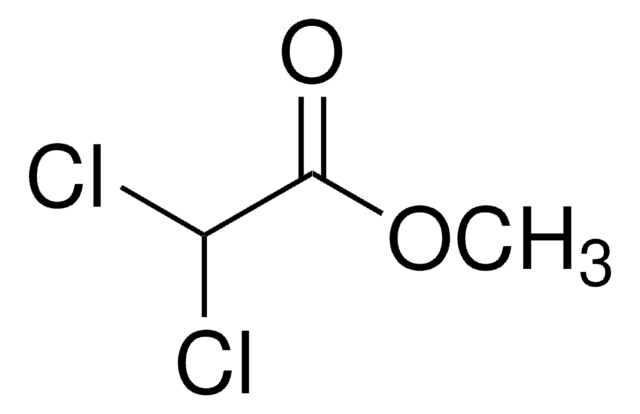347795
Sodium dichloroacetate
98%
Sinónimos:
Dichloroacetic acid sodium salt
About This Item
Productos recomendados
Nivel de calidad
Análisis
98%
impurezas
<2% ethyl alcohol
mp
198 °C (dec.) (lit.)
cadena SMILES
[Na+].[O-]C(=O)C(Cl)Cl
InChI
1S/C2H2Cl2O2.Na/c3-1(4)2(5)6;/h1H,(H,5,6);/q;+1/p-1
Clave InChI
LUPNKHXLFSSUGS-UHFFFAOYSA-M
Información sobre el gen
human ... PDK1(5163) , PDK2(5164) , PDK3(5165) , PDK4(5166)
Descripción general
Aplicación
Palabra de señalización
Warning
Frases de peligro
Consejos de prudencia
Clasificaciones de peligro
Carc. 2 - Eye Irrit. 2 - Skin Irrit. 2 - STOT SE 3
Órganos de actuación
Respiratory system
Código de clase de almacenamiento
11 - Combustible Solids
Clase de riesgo para el agua (WGK)
WGK 2
Punto de inflamabilidad (°F)
Not applicable
Punto de inflamabilidad (°C)
Not applicable
Equipo de protección personal
dust mask type N95 (US), Eyeshields, Gloves
Elija entre una de las versiones más recientes:
¿Ya tiene este producto?
Encuentre la documentación para los productos que ha comprado recientemente en la Biblioteca de documentos.
Los clientes también vieron
Artículos
We presents an article about the Warburg effect, and how it is the enhanced conversion of glucose to lactate observed in tumor cells, even in the presence of normal levels of oxygen. Otto Heinrich Warburg demonstrated in 1924 that cancer cells show an increased dependence on glycolysis to meet their energy needs, regardless of whether they were well-oxygenated or not.
Nuestro equipo de científicos tiene experiencia en todas las áreas de investigación: Ciencias de la vida, Ciencia de los materiales, Síntesis química, Cromatografía, Analítica y muchas otras.
Póngase en contacto con el Servicio técnico